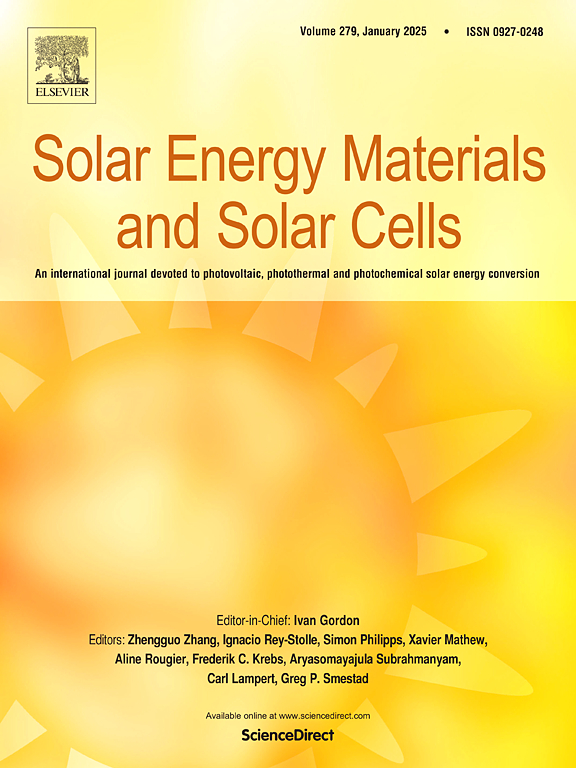Preparation and corrosion study of NaOH-NaNO3 composite phase change thermal energy storage material
IF 6.3
2区 材料科学
Q2 ENERGY & FUELS
引用次数: 0
Abstract
Inorganic phase change materials (PCMs), such as common eutectic salts—solar salt (60 wt% NaNO3+40 wt% KNO3) and Hitec salt (53 wt% KNO3+7 wt% NaNO3+40 wt% NaNO2)—are widely used in solar thermal power storage due to high stability and low cost. However, optimizing eutectic compositions requires extensive experiments, and material compatibility with pipelines/storage tanks remains a key challenge. Herein, nine NaOH-NaNO3 mixtures of varying molar ratios were melt-cooled and screened via DSC, yielding three eutectic formulations. The 6:4 NaOH:NaNO3 composite (NN-PCM) exhibited a phase transition temperature of 268 °C, enthalpy of 260 J/g (a 50 °C reduction from pure components), and a maximum service temperature of 480 °C. Corrosion tests at 300 °C for 1000 h in sealed vessels revealed increasing corrosion rates in 310S stainless steel, ductile iron, 304 stainless steel, and 45 steel. Post-test analyses confirmed NN-PCM retained eutectic properties: stable melting temperature (268 °C), 11–17 °C lower solidification temperature, and 7 % enthalpy reduction (20 J/g). This work offers insights into inorganic PCM applications in medium-to-high-temperature energy storage systems.
NaOH-NaNO3复合相变储能材料的制备及腐蚀研究
无机相变材料(PCMs),如普通共晶盐-太阳盐(60 wt% NaNO3+40 wt% KNO3)和Hitec盐(53 wt% KNO3+7 wt% NaNO3+40 wt% NaNO2),由于其高稳定性和低成本而广泛应用于太阳能热储能。然而,优化共晶成分需要大量的实验,并且材料与管道/储罐的兼容性仍然是一个关键挑战。本文对不同摩尔比的9种NaOH-NaNO3混合物进行了熔融冷却和DSC筛选,得到了3种共晶配方。6:4 NaOH:NaNO3复合材料(NN-PCM)的相变温度为268℃,焓为260 J/g(比纯组分降低了50℃),最高使用温度为480℃。在密封容器中300°C 1000小时的腐蚀试验表明,310S不锈钢、球墨铸铁、304不锈钢和45钢的腐蚀速率增加。测试后分析证实NN-PCM保留了共晶性能:稳定的熔融温度(268°C),较低的凝固温度11-17°C,焓降低7% (20 J/g)。这项工作为无机PCM在中高温储能系统中的应用提供了见解。
本文章由计算机程序翻译,如有差异,请以英文原文为准。
求助全文
约1分钟内获得全文
求助全文
来源期刊

Solar Energy Materials and Solar Cells
工程技术-材料科学:综合
CiteScore
12.60
自引率
11.60%
发文量
513
审稿时长
47 days
期刊介绍:
Solar Energy Materials & Solar Cells is intended as a vehicle for the dissemination of research results on materials science and technology related to photovoltaic, photothermal and photoelectrochemical solar energy conversion. Materials science is taken in the broadest possible sense and encompasses physics, chemistry, optics, materials fabrication and analysis for all types of materials.
 求助内容:
求助内容: 应助结果提醒方式:
应助结果提醒方式:


